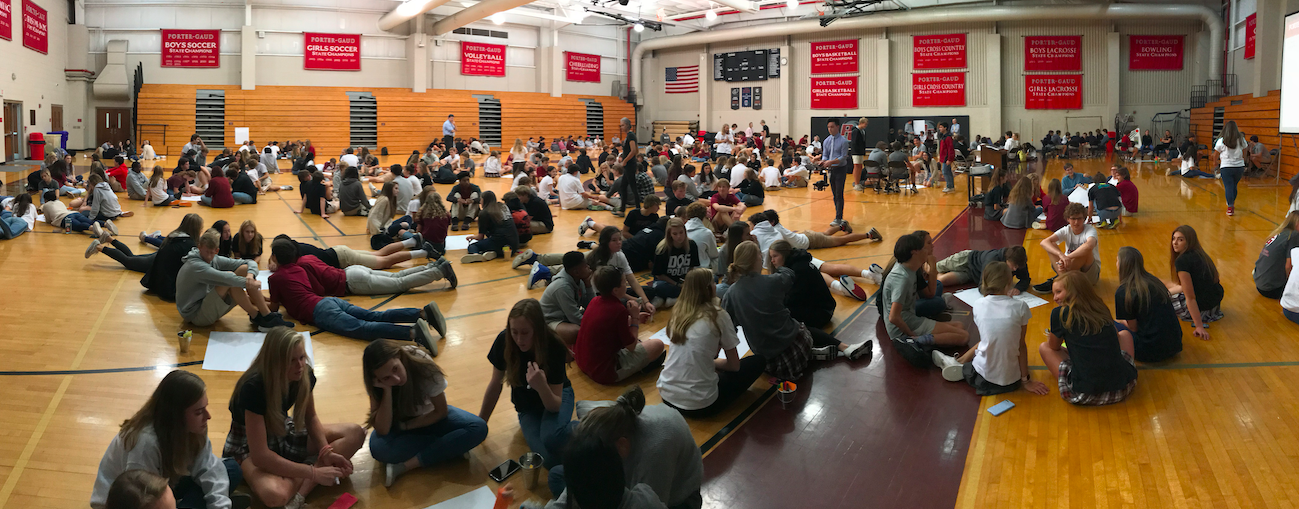 What if one of the most important pillars supporting how and what we teach is wrong? What if you knew that most of our systems of grading, assessment, and promotion are based on faulty assumptions and bad math? What if the emperor had no clothes?
What if one of the most important pillars supporting how and what we teach is wrong? What if you knew that most of our systems of grading, assessment, and promotion are based on faulty assumptions and bad math? What if the emperor had no clothes?
This is what Todd Rose sets out to prove in his new book, The End of Average, and it is a must read for educators…as well as everyone else.
Rose first introduces us to Air Force Lt. Gilbert S. Daniels who, in the 1950’s, decided to take a novel look at why new jets were crashing at a remarkable rate. He went back decades and studied how cockpits had been designed to fit the average-sized pilot. Without going into the entire, fascinating story, what he found was that, even amongst a group of men pre-selected to be “average” in size, there was absolutely no such thing as an average-sized pilot. One person might be average in height, but not in arm or leg length; another might have an average reach but fall outside all other measurement categories. People are “jagged”, Rose says, and his book lays out the history and math to prove it.
In school, you are graded and ranked by comparing your performance to the average student. To get admitted to college, your grades and test scores are compared to the average applicant.
But the moment you need a pilot, or a plumber, or a doctor, the moment you need to teach this child or decide whether to hire that employee—the moment you need to make a decision about any individual—the average is useless. Worse than useless, in fact, because it creates the illusion of knowledge, when in fact the average disguises what is most important about an individual.
Any system designed around the average person is doomed to fail.
And all of traditional education, from curriculum to instruction to assessment to promotion, is designed around the average person.
Rose, who was a D-level student in high school and almost did not enter, much less finish, college, is now at the Harvard Graduate School of Education. The book delves into education, mostly focusing on post-secondary levels (but his conclusions and examples are every bit as relevant to K-12), and employment. He reminds us of the faulty premises upon which educational assessments were built, designed to weed out those that might not fit well into the industrial-age theories of efficiency and effective management. He gives us modern examples of major companies like Google and Microsoft that realized the lack of correlation between applicants’ educational assessments like GPA, test scores, and where they went to school, and how well they perform in the workplace. His work provides a solid, objective basis for the need for performance-based assessments and promotion in school.
Before I was done reading the book I told the story of Lt. Daniels to my (admittedly very bright), college graduate daughter, noting the conclusion that we are all “jagged” and not average. Her response: “Of course; thinking people are average in many ways is just stupid”, thereby debunking pretty much all of how we teach and assess our students in one brutally clear, short sentence. The question now is, what are you going to do about it?





Grant,
Your post here reminded me of another Rose, Mike Rose, a prof at the UCLA Grad School of Education and Information Sciences. He’s written on the intelligence in all kinds of work and his appearance on the public radio show “On Being” is just great. Take a listen if you have time: http://www.onbeing.org/program/mike-rose-the-meaning-of-intelligence/transcript/7871